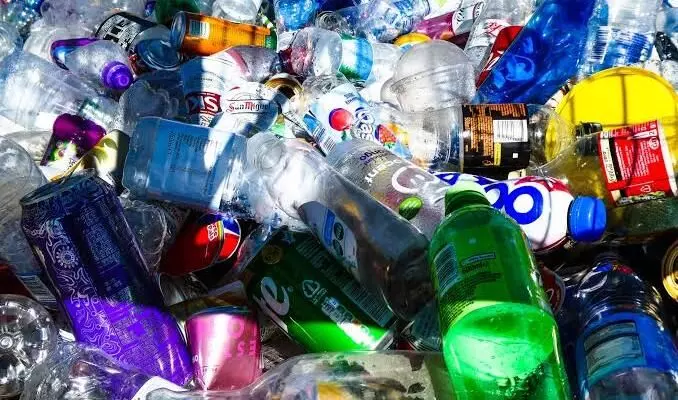
Researchers develop methods to derive vanilla flavour from plastic waste
text_fieldsHumans produce more than 6 billion tons of plastic every year, and its accumulation in landfills and oceans is considered by many to be a global environmental crisis. And at a time when the massive efforts into finding indigenous ways to giving a second life to plastics are underway, a team of researchers have discovered a novel vanilla-scented solution to the world's plastic crisis.
In the new research, conducted by a team at the University of Edinburgh, the researchers propose a way of using bacteria to transform post-consumer plastic into vanillin, the compound which gives vanilla its delicious taste and smell.
According to The Guardian, the research recently published in the journal Green Chemistry used genetically engineered E. coli to allow it to convert terephthalic acid – a molecule derived from polyethene terephthalate (PET) – into vanillin.
The scientists warmed a microbial broth to 37C for a day, the same conditions as for brewing beer which converted 79% of the terephthalic acid (TA) into vanillin.
In a statement issued, Joanna Sadler, the first author of the paper claimed that this was the first example of using a biological system to upcycle plastic waste into a valuable industrial chemical and that it has exciting implications for the circular economy.
Sadler further added that the results from the research have major implications for the field of plastic sustainability and demonstrate the power of synthetic biology to address real-world challenges.
Ellis Crawford, of the Royal Society of Chemistry, noted the novel solution as an interesting use of microbial science to improve sustainability.
He also added that using microbes to turn waste plastics, which are harmful to the environment, into an important commodity is a beautiful demonstration of green chemistry.
PET is a type of plastic derived from non-renewable materials, and whose current recycling methods involve breaking it down into its constituent parts, one of which is TA, it was imperative to find a more effective and sustainable method like this one.
While the researchers claim that the vanillin yielded is fit for human consumption, this is yet to be verified and further tests are required.






